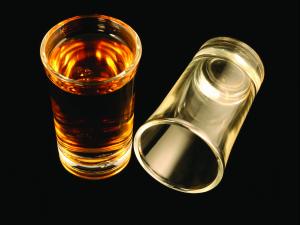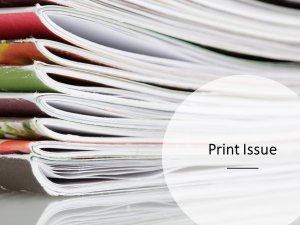Respiratory physician Lutz Beckert considers chronic obstructive pulmonary disease management, including the prevention of COPD, the importance of smoking cessation and pulmonary rehabilitation, and the lifesaving potential of addressing treatable traits. He also discusses the logic of inhaler therapy, moving from single therapy to dual and triple therapy when indicated, as well as other aspects of management
Lighten the load of alcohol harms
Lighten the load of alcohol harms

In the first of a new series from Women in Medicine, Orna McGinn writes of a family legacy of harm and a cycle that must be stopped
I thought the UK had an alcohol problem until I came to live in New Zealand
I grew up in an alcoholic family. The phrasing is deliberate. My dad was the alcoholic, but alcoholism is never about one person.
My parents were from very modest backgrounds in rural Ireland; my dad was bright, part of the 1960s’ exodus of Irish leaving for better opportunities in the UK.
He worked hard and, as my parents became financially comfortable, he switched from drinking Guinness to wine. This is key; the narrative was that he could not possibly be that most shameful of caricatures, an Irish alcoholic, because he only drank good wine – two or three bottles a day.
My parents lived in an Irish bubble. With no English friends, the culture of heavy drinking and carousing was entirely normal. I had no idea other parents did not stay up drinking all nights of the week, falling down stairs and having the police called on them by neighbours alarmed by roars and shouts from next door.
We left many times. My sisters and I were exhilarated by the late-night escapes, my dad clinging to the bonnet of the car as my mum swerved in an attempt to flick him off onto the driveway. I did my “O” levels while we were living in a bed and breakfast. My focus was on keeping my head down, studying my way out of the chaos. The classic behaviour of the eldest child in an alcoholic family. Of course, we went back – we always went back.
My dad was widely loved; he was the life and soul of the party until the party was over. No one could match his stamina. At our wedding, Simon and I left exhausted at around 1am. We came back the next day to have lunch with my parents, to find my dad and all his friends singing “Fields of Athenrye” in the marquee where we had left them. We kept one case of wedding champagne; he drank it while we were on our honeymoon.
Coming home for holidays from medical school, I would search surreptitiously for spider naevi, flushed palms and ascites, so there was no surprise when these finally appeared. The jaundice, though, was a shock. “Yes, I thought he was looking a bit yellow,” said my mum, head in the sand.
My dad was dead within six months of being diagnosed with cirrhosis, leaving my mum a widow at 55. He spent those months growing increasingly wasted, silent and ashamed. It is so hard to accept that you are the cause of your fate.
He died in the King’s College Hospital liver unit, so oedematous that his eyelids could not cover his eyes. His legacy lives on in the form of addictions suffered by other family members.
READ MORE: Targeting alcohol’s ties with sport
I thought the UK had an alcohol problem until I came to live in New Zealand. Drinking is almost a patriotic duty, seen as doing your bit for the wine industry.
More recently, the proliferation of beautifully packaged and marketed new-generation ready-to-drink mixtures has become a cause for alarm.
Who could resist a beautiful teal coloured, fully recyclable can of peach and passionfruit vodka, “all natural, low in sugar, gluten free, vegan friendly AND free from artificial colours, sweeteners and preservatives”? Why, this stuff is good for you!
In June, Green Party MP Chlöe Swarbrick’s proposed Alcohol Harm Minimisation Bill was drawn from the ballot, and will now proceed through to its first reading.
The bill would give local areas the power to reject planning applications from alcohol outlets. It also proposes to enshrine in law many of the recommendations of the 2014 Ministerial Forum on Alcohol Advertising and Sponsorship. These include the banning of alcohol advertising and sponsorship associated with sport in order to reduce harm, particularly for young people and vulnerable populations.
In short, this bill provides the opportunity for world-leading legislation that will disrupt New Zealand’s unhealthy relationship with alcohol. It will save lives.
Deputy prime minister Grant Robertson (speaking, one presumes, with his sport-and-recreation-minister hat on) feels differently.
Mr Robertson has indicated that, if the bill is presented as a conscience vote, he will not be voting in favour. Speaking on RNZ’s Morning Report recently, he opined: “We’ve got to be able to have sustained and continued funding…while I recognise the impacts of alcohol on our population, that’s a very substantial sum of money to switch the tap off right away on.”
The honourable member’s conscience is presumably taking time off, perhaps out having a few beers with mates.
When this conscience re-enters the building – maybe with a hangover – it will find itself on the wrong side of history.
Do we really need to present the statistics once again?
Children are exposed to alcohol advertising approximately five times a day; up to 25 times for Māori children and those living in low-decile areas.
There is no need to list the “impacts of alcohol on our population” – we are familiar with the harm. Or are we? When money speaks (via the powerful alcohol lobby), truth is silent.
Minister Robertson, I shall share some truths with you. It is completely disingenuous to insist on the necessity of alcohol branding within New Zealand sport. The association appears increasingly incongruous.
Mr Robertson’s moral cowardice and “whataboutery” on this issue is shameful. There is no difference between alcohol and tobacco sponsorship: the effect is to link unhealthy products with healthy activity in order to whitewash their impacts.
Ireland’s own Public Health (Alcohol) Act was passed in 2018, and alcohol advertising in sport has been prohibited there since 2021. We can do the same. This bill must pass – it is time to break the cycle.
We're publishing this article as a FREE READ so it is FREE to read and EASY to share more widely. Please support us and the hard work of our journalists by clicking here and subscribing to our publication and website







![Barbara Fountain, editor of New Zealand Doctor Rata Aotearoa, and Paul Hutchison, GP and senior medical clinician at Tāmaki Health [Image: Simon Maude]](/sites/default/files/styles/thumbnail_cropped_100/public/2025-03/Barbara%20Fountain%2C%20editor%20of%20New%20Zealand%20Doctor%20Rata%20Aotearoa%2C%20and%20Paul%20Hutchison%2C%20GP%20and%20senior%20medical%20clinician%20at%20T%C4%81maki%20Health%20CR%20Simon%20Maude.jpg?itok=-HbQ1EYA)
![Lori Peters, NP and advanced health improvement practitioner at Mahitahi Hauora, and Jasper Nacilla, NP at The Terrace Medical Centre in Wellington [Image: Simon Maude]](/sites/default/files/styles/thumbnail_cropped_100/public/2025-03/2.%20Lori%20Peters%2C%20NP%20and%20advanced%20HIP%20at%20Mahitahi%20Hauora%2C%20and%20Jasper%20Nacilla%2C%20NP%20at%20The%20Terrace%20Medical%20Centre%20in%20Wellington%20CR%20Simon%20Maude.jpg?itok=sUfbsSF1)
![Ministry of Social Development health and disability coordinator Liz Williams, regional health advisors Mary Mojel and Larah Takarangi, and health and disability coordinators Rebecca Staunton and Myint Than Htut [Image: Simon Maude]](/sites/default/files/styles/thumbnail_cropped_100/public/2025-03/3.%20Ministry%20of%20Social%20Development%27s%20Liz%20Williams%2C%20Mary%20Mojel%2C%20Larah%20Takarangi%2C%20Rebecca%20Staunton%20and%20Myint%20Than%20Htut%20CR%20Simon%20Maude.jpg?itok=9ceOujzC)
![Locum GP Helen Fisher, with Te Kuiti Medical Centre NP Bridget Woodney [Image: Simon Maude]](/sites/default/files/styles/thumbnail_cropped_100/public/2025-03/4.%20Locum%20GP%20Helen%20Fisher%2C%20with%20Te%20Kuiti%20Medical%20Centre%20NP%20Bridget%20Woodney%20CR%20Simon%20Maude.jpg?itok=TJeODetm)
![Ruby Faulkner, GPEP2, with David Small, GPEP3 from The Doctors Greenmeadows in Napier [Image: Simon Maude]](/sites/default/files/styles/thumbnail_cropped_100/public/2025-03/5.%20Ruby%20Faulkner%2C%20GPEP2%2C%20with%20David%20Small%2C%20GPEP3%20from%20The%20Doctors%20Greenmeadows%20in%20Napier%20CR%20Simon%20Maude.jpg?itok=B0u4wsIs)
![Rochelle Langton and Libby Thomas, marketing advisors at the Medical Protection Society [Image: Simon Maude]](/sites/default/files/styles/thumbnail_cropped_100/public/2025-03/6.%20Rochelle%20Langton%20and%20Libby%20Thomas%2C%20marketing%20advisors%20at%20the%20Medical%20Protection%20Society%20CR%20Simon%20Maude.jpg?itok=r52_Cf74)
![Specialist GP Lucy Gibberd, medical advisor at MPS, and Zara Bolam, urgent-care specialist at The Nest Health Centre in Inglewood [Image: Simon Maude]](/sites/default/files/styles/thumbnail_cropped_100/public/2025-03/7.%20Specialist%20GP%20Lucy%20Gibberd%2C%20medical%20advisor%20at%20MPS%2C%20and%20Zara%20Bolam%2C%20urgent-care%20specialist%20at%20The%20Nest%20Health%20Centre%20in%20Inglewood%20CR%20Simon%20Maude.jpg?itok=z8eVoBU3)
![Olivia Blackmore and Trudee Sharp, NPs at Gore Health Centre, and Gaylene Hastie, NP at Queenstown Medical Centre [Image: Simon Maude]](/sites/default/files/styles/thumbnail_cropped_100/public/2025-03/8.%20Olivia%20Blackmore%20and%20Trudee%20Sharp%2C%20NPs%20at%20Gore%20Health%20Centre%2C%20and%20Gaylene%20Hastie%2C%20NP%20at%20Queenstown%20Medical%20Centre%20CR%20Simon%20Maude.jpg?itok=Z6u9d0XH)
![Mary Toloa, specialist GP at Porirua and Union Community Health Service in Wellington, Mara Coler, clinical pharmacist at Tū Ora Compass Health, and Bhavna Mistry, specialist GP at Porirua and Union Community Health Service [Image: Simon Maude]](/sites/default/files/styles/thumbnail_cropped_100/public/2025-03/9.%20Mary%20Toloa%2C%20Porirua%20and%20Union%20Community%20Health%20Service%20in%20Wellington%2C%20Mara%20Coler%2C%20T%C5%AB%20Ora%20Compass%20Health%2C%20and%20Bhavna%20Mistry%2C%20PUCHS%20CR%20Simon%20Maude.jpg?itok=kpChr0cc)